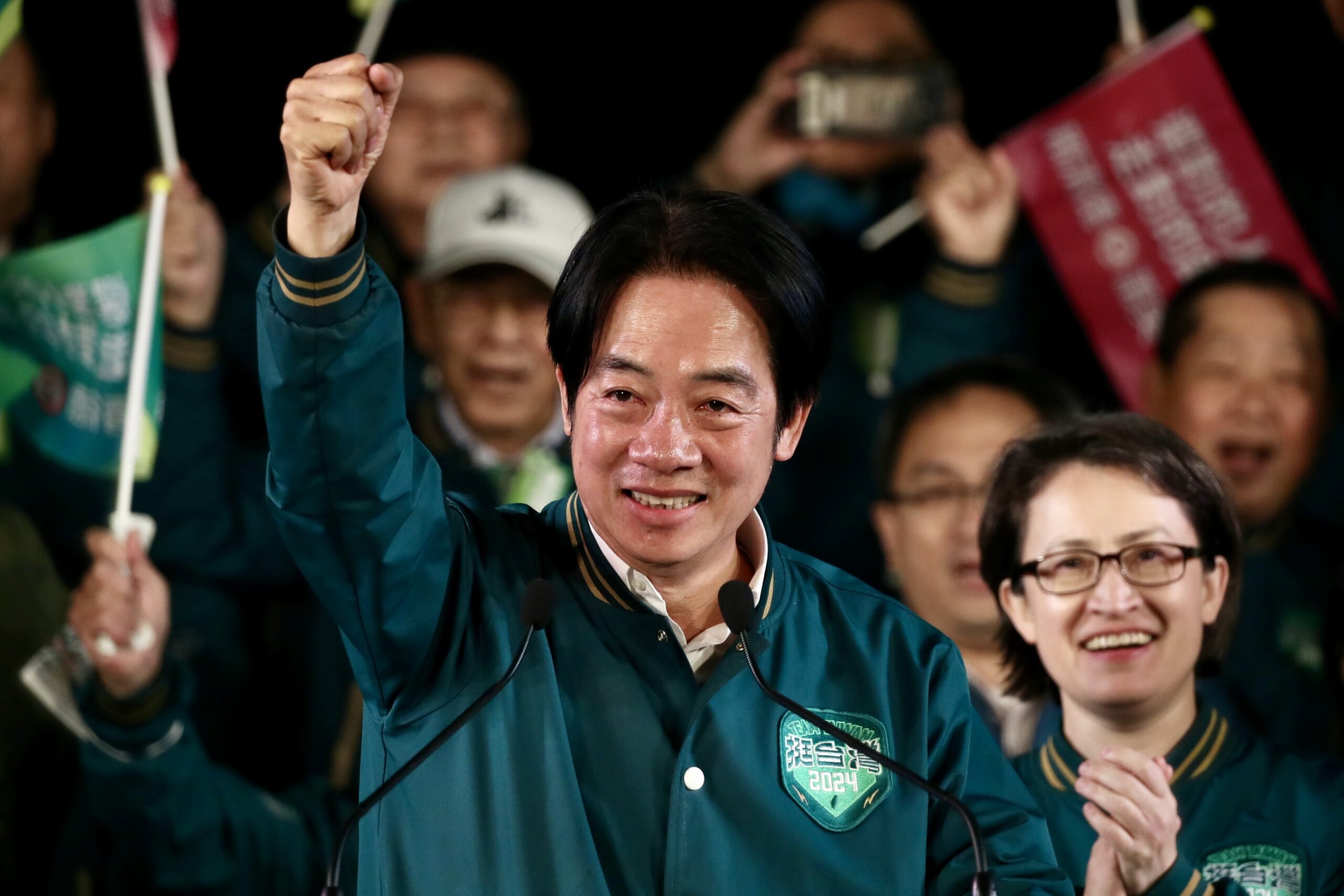No risk of war before new Taiwan president takes office but Beijing to keep up coercion drive, island’s spy chief says
Taiwan’s intelligence chief sees no “risky signal” of a cross-strait conflict ahead of the inauguration of William Lai Ching-te, the Taiwanese president-elect described by Beijing as an “obstinate separatist”.
However, this did not mean Beijing would go easy on Taiwan, cautioned Tsai Ming-yen, head of the self-governed island’s National Security Bureau.
Rather, it was expected to continue to strengthen its carrot-and-stick approach to pressure Lai in the run-up to his inauguration on May 20, Tsai told lawmakers on Monday.
“Presently we do not see any risky signal that could catalyse a war [in the Taiwan Strait]”, Tsai said when asked to analyse the cross-strait situation after the close of Beijing’s “two sessions” – annual meetings of its national legislature and top political advisory body.
Tsai said his bureau had shared intelligence with foreign governments about the chances of a potential cross-strait conflict, and “close discussions” with them had also indicated no signs of imminent war.
Cross-strait tensions did flare last month after two mainland fishermen died during a chase by the Taiwanese coastguard, “but no exceptional tensions are found presently”, Tsai said.
He said the mainland side had “announced certain maritime measures” three days after the incident on February 14 but, since March 1, there had been no more “unusual” situations off Quemoy, a Taiwan-controlled island group and defence outpost also known as Kinmen.
Beijing accused the Taiwanese coastguard of using “violent and dangerous methods” in their pursuit of the mainland boat and announced an increase in its own coastguard patrols around Quemoy, with officers even boarding a Taiwanese cruise ship to check its papers, and captain and crew licences.
“After all, stability in the Taiwan Strait is also in [Beijing’s] interest and we have noticed that they have employed certain risk control measures following the incident,” Tsai said.
He said peaceful reunification was still the preferred choice in mainland President Xi Jinping’s Taiwan policy, but Beijing was expected to ramp up attempts at coercion to influence the Lai government.
Beijing views Taiwan as part of its territory, to be reunited by force if necessary, and repeatedly warned the island against electing Vice-President Lai of the independence-leaning ruling Democratic Progressive Party as its next leader.
It also labelled the result of the vote as “unacceptable” and said Lai’s leadership would bring war to Taiwan.
Beijing’s use of coercion by political, economic, military and security means, as well as misinformation campaigns, would aim to create the impression that cross-strait war was imminent, Tsai said. This would serve its goal of scaring the Taiwanese public into swiftly accepting the proposed “peaceful unification and co-prosperity”.
Beijing’s military budget isn’t a surprise, but Taiwan is taking no chances
Beijing’s military budget isn’t a surprise, but Taiwan is taking no chances
Beijing had boosted ties with Taiwanese who favour closer mainland ties but also stepped up displays of force to intimidate the island, Tsai added, calling it “playing soft on one hand and hard on the other”.
Lai takes office months before the United States – Taiwan’s informal ally and top weapons supplier – elects a new president. The US, like most countries, does not recognise Taiwan as independent but is opposed to any attempt to take it by force and is committed to arming it.
On who would best support Taiwan, US President Joe Biden or his predecessor Donald Trump, if either were to win the election in November, Tsai said the two had different stands on different issues, but both were concerned about cross-strait security.
“Regardless of who wins, there will be no substantial changes in the US policy of maintaining friendly ties with Taiwan to counter China.”
